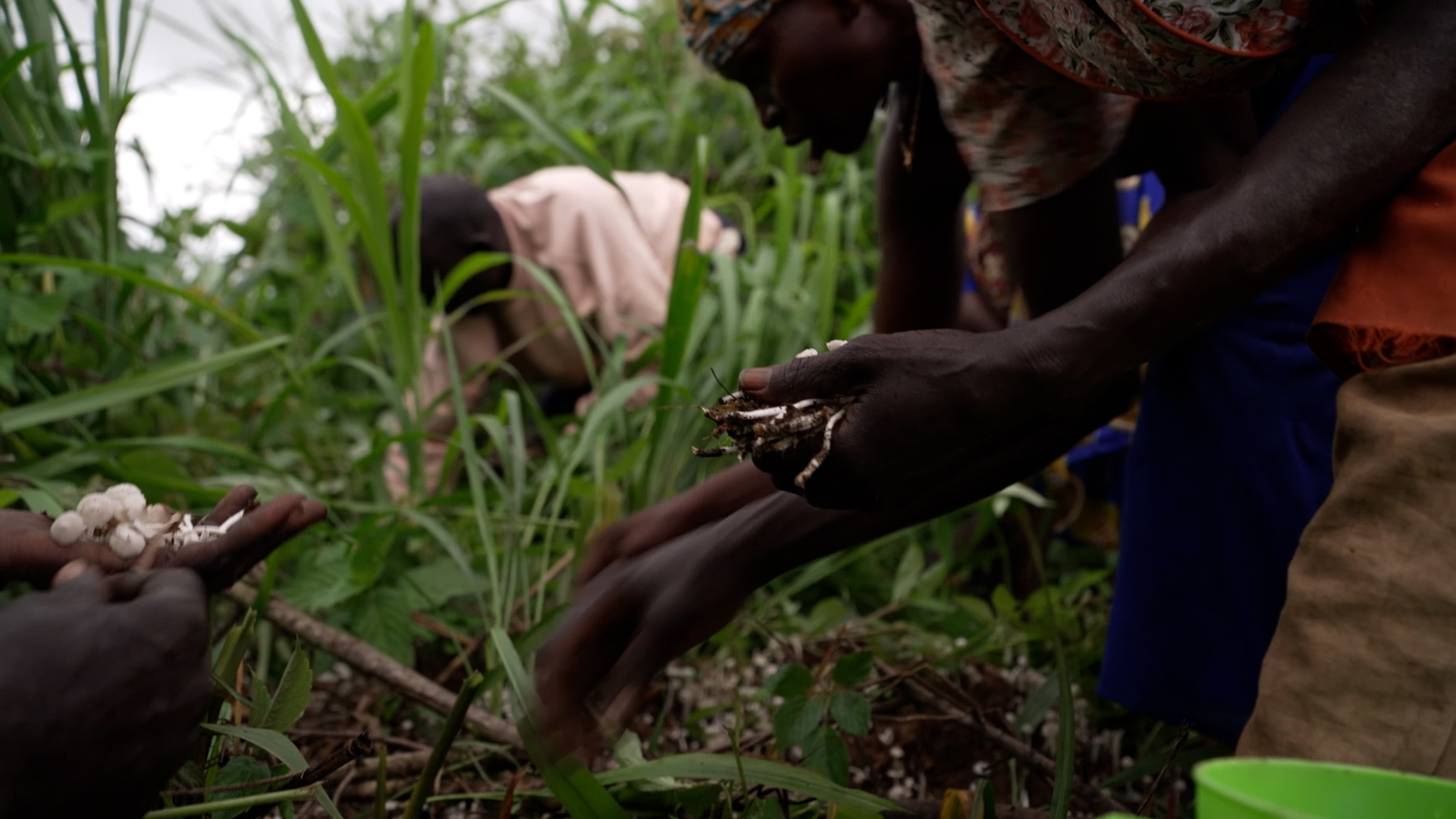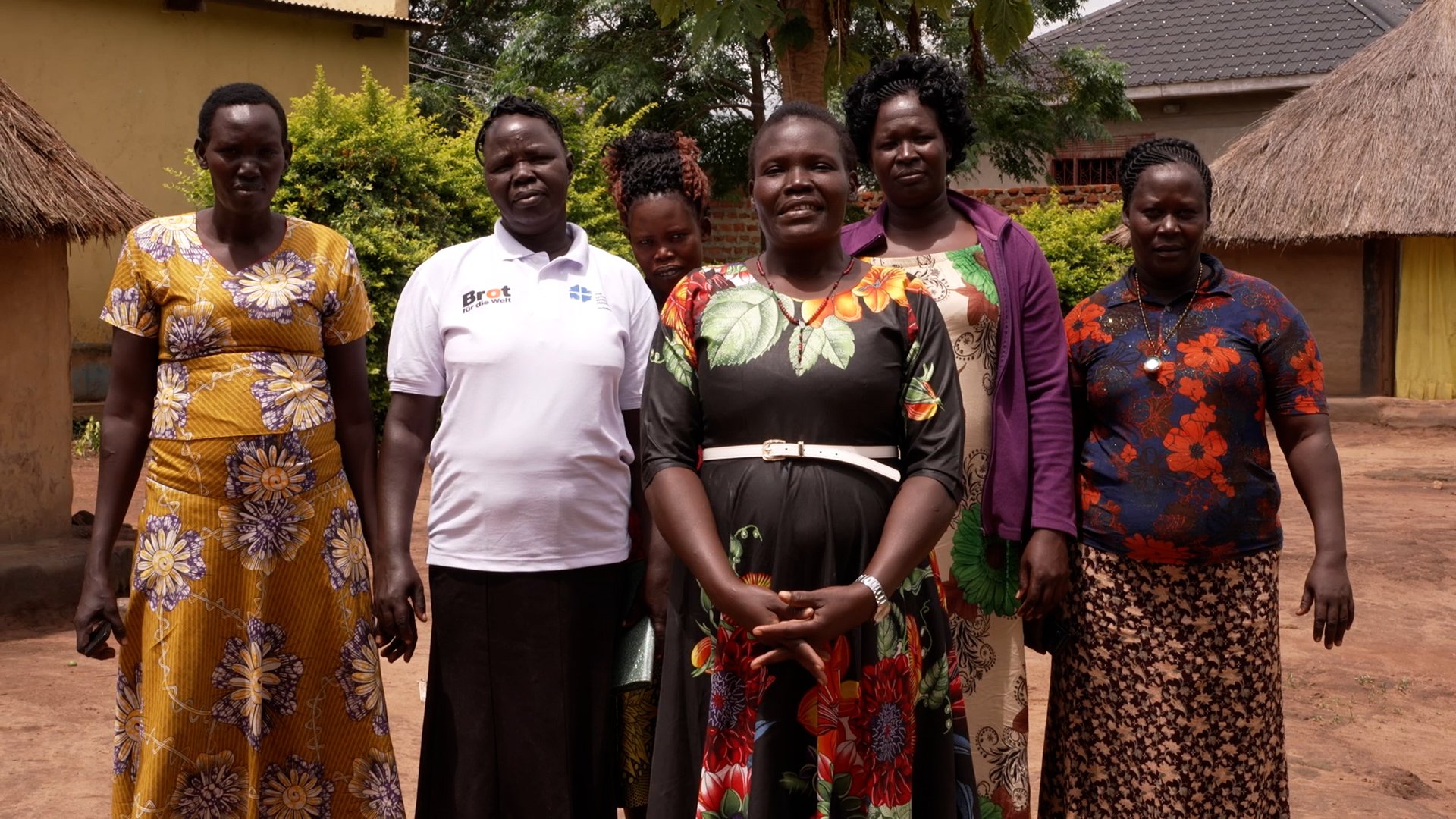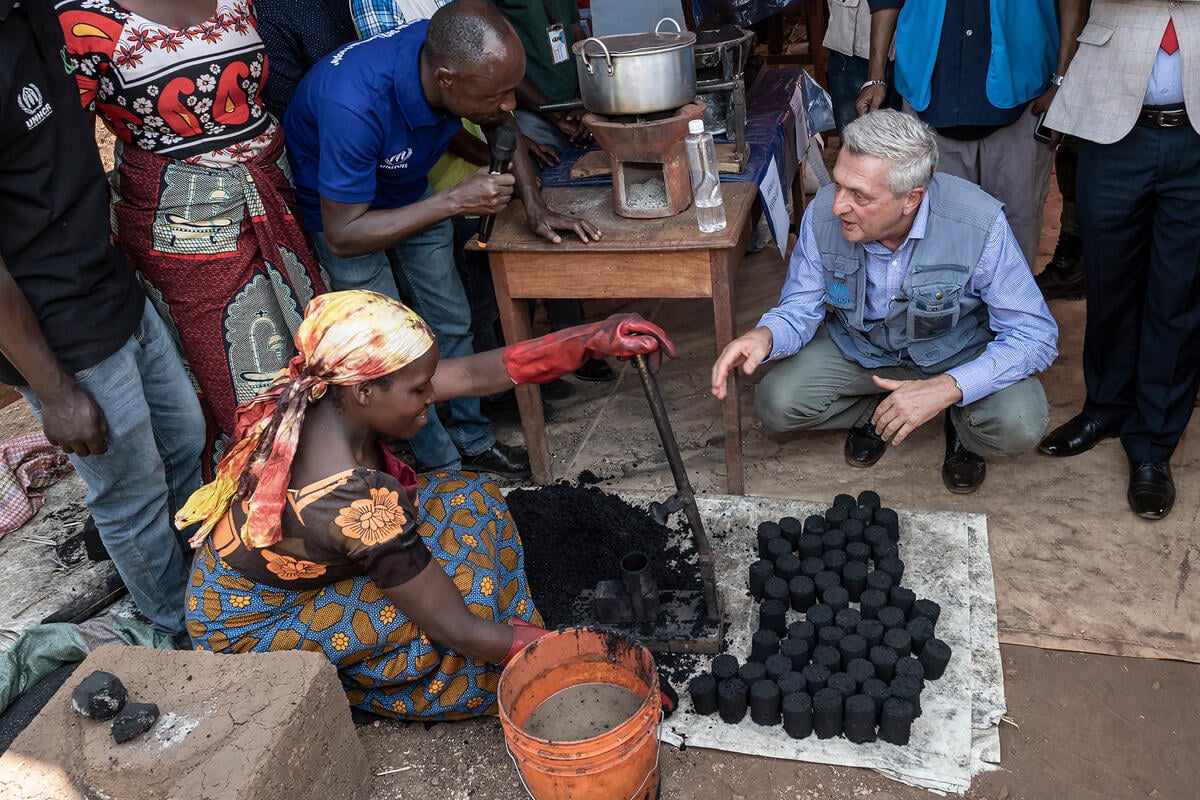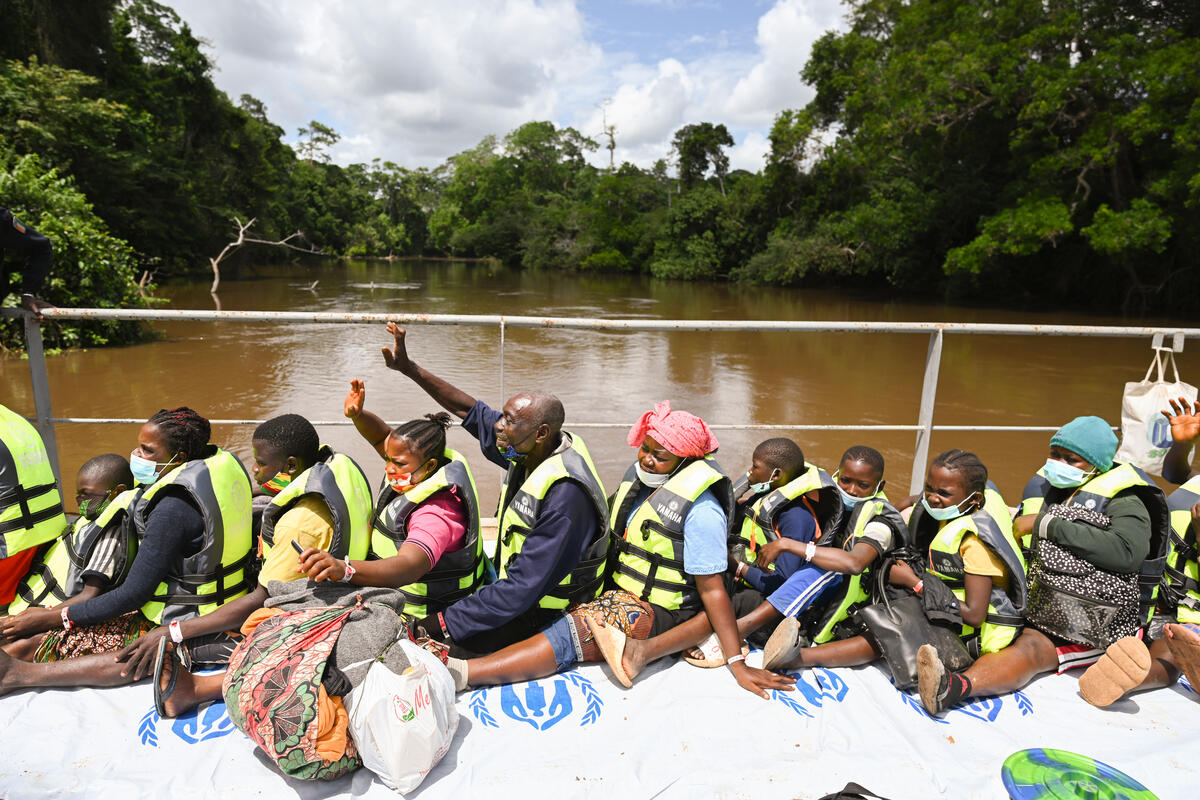Urban teacher gives up life in Congo to start afresh in Angola
Urban teacher gives up life in Congo to start afresh in Angola

KINSHASA, Democratic Republic of the Congo, January 25 (UNHCR) - Pedro is the kind of urban professional that Angola needs to help build stability and a viable future after years of devastating conflict.
But he was born in the Democratic Republic of the Congo (DRC) and has mixed memories of the short time that he stayed in the land of his parents after Angola gained independence from Portugal in 1975. Recalling his life, Pedro went from the depths of losing his parents as a boy, and having to fend for himself, to the high of graduating from university.
He shared his tears and laughter with this UNHCR writer and also explained his difficult decision to return to Angola with his Congolese wife and his four children. "I want to go back to Angola because I want to participate in the development of my country. I want to help develop my country in the field of education," said Pedro, who teaches Latin and French at a secondary school in Kinshasa.
The whole family has registered to go to Angola under a voluntary repatriation programme that was relaunched late last year by UNHCR and the governments of Angola and the DRC. Some 15,000 people have gone back to date, while an estimated 120,000 returned with or without assistance from 2003-2008.
Pedro was not ready to return earlier, but now says that with peace restored in Angola he wants to complete a journey that has taken him on an at times rocky and unpredictable path. "They want to see their country [too]," the 45-year-old added of his children.
His own journey began in DRC's Bas-Congo province west of Kinshasa, where he was born not long after his parents fled across the border in the mid-1960s. In 1975, when Pedro was eight years old, Angola gained independence from Portugal and his proud mother decided to go back.
"My mother was always telling people that she returned to Angola with her children because she wanted them to know their country," said Pedro, recalling a brief period of plenty and of happiness. That bright memory has stayed with him. But a year later, civil war broke out, and they were on the run again.
"We fled into the forest, but we could not survive there and we had to return to our village. When there were problems in the village, we lived in the forest. We were staying one month in the forest and then one month back in the village. I was scared."
In 1978, his mother realized that their lives were in great danger and they had to make a run for the border. It ended up as an arduous and dangerous month-long journey. "We were hiding in caves. My legs were swollen," said Pedro, who remembered it all like yesterday. And one day they ran into an ambush.
"We were attacked between two hills and some women had to leave their children behind. My mother told me that I should follow her and if she was hit by a bullet, I should follow the people going to Zaire [as the DRC was then known]." But she made it through and they crossed the border a few days later, after surviving on cassava roots scavenged from the abandoned fields they passed.
The warm reception they received from the local people in Bas-Congo, including gifts of clothing, made a lasting impression on Pedro. And he had his first contact with UNHCR, when the family were registered as refugees at the agency's field office in the Bas-Congo town of Kimpese and given food.
It was a very tough childhood, an emotional Pedro reflected, almost breaking down when telling UNHCR about his struggle to survive on his own after the death of his beloved parents when he was just 12 years old. "I lived alone with my little sister and worked in the fields. My older sister was working in a nearby town and one day she came to pick up my sister, but she did not take me. She said that I should stay where I was and continue working in the fields."
The bright and resourceful boy decided to walk to Kimpese and seek help from UNHCR. The journey took two days, but it was the right decision. "UNHCR supported me and helped me to go to school in Lukala. I went to secondary school in Ntuadisi. When I finished secondary school, UNHCR gave me a scholarship and I went to university, where I studied French and Latin."
Pedro graduated from Kinshasa's Université Pédagogique Nationale in 2010 and found a job at Saint Antoine's school. He had a rosy future. But something was missing. Although immensely grateful for the opportunities he received in the Democratic Republic of the Congo, he decided that the best way to fulfill his potential, thank UNHCR and help others in need, was to go and build a life in Angola's Uige province, where his mother came from.
"My parents used to tell us about Angola. I do the same with my children," Pedro revealed. "And now they don't stop asking me when we will go to Angola."
By Celine Schmitt in Kinshasa, Democratic Republic of the Congo








